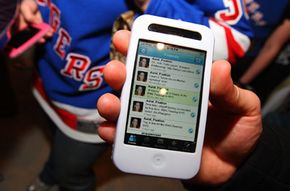That photo you saw on Facebook was hilarious -- until you realized it was a picture of your Aunt Maggie. As you surf the Internet, you may stumble upon a blog or social networking site and see something that makes you wonder why people share embarrassing information online. To find out, we need to understand how many people participate in online communities.
As of 2009, millions of people maintain profiles on social networking sites, including personal blogs. More than 50 million blogs exist, and their contributors post a total of more than 1.5 million comments a day [source: Sifry]. In Canada, the average Joe or Jane has a profile on seven or more online sites like MySpace, Facebook and LinkedIn [source: Shaw].
Advertisement
We've come a long way since the chat rooms and instant messengers of the 1990s, where we could create a digital identity as an avatar cloaked behind the anonymous cover of a screen name. Today, many people not only post their true names and actual photographs online, they also share juicy details of their personal lives that some consider too much information or oversharing. That information -- like tales of binge drinking or casual romantic encounters -- could come back to haunt anyone who chooses to share his or her life online. Yet, some people insist on baring it all in the name of self-expression.
Psychologists and sociologists disagree on the reasons for our society's lack of inhibition. Some say that we feel better about ourselves than we ever have before. Others blame loneliness and the growing lack of traditional community for the need to air our dirty laundry like we're in a confessional booth. What most experts agree on is that people share potentially embarrassing information online for one reason -- to get attention.
In the next section we'll learn more about oversharing and why even some future doctors would jeopardize their careers by putting questionable posts online for the entire world to see.
Advertisement



